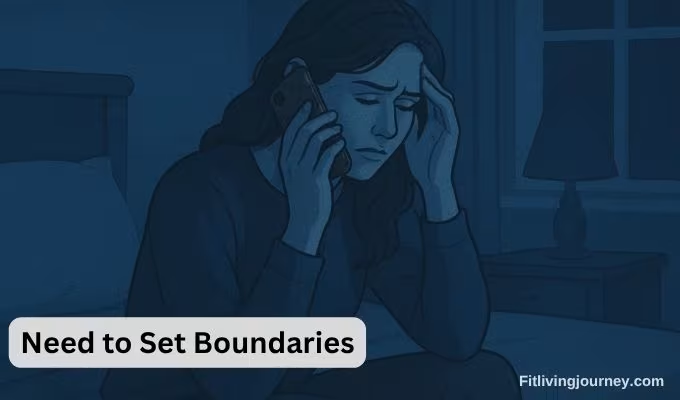Understanding Emotions
Today, let’s talk about a problem many of you are facing — handling your emotions.
Whether it’s stress at work, frustration in relationships, or just feeling low for no clear reason, emotions can feel overwhelming.
They can affect your entire day — your behavior, how you feel physically and mentally, and even your attention.
When you don’t understand what emotions mean, you either suppress them or let them explode.
So today, let’s look at three important things your emotions usually try to communicate, and how to respond to them in a healthy, practical way.
But before that, let’s understand the importance of emotions.
Why Emotions Matter More Than You Think
Emotions are not as simple as they seem. They impact different areas of life.
Studies have shown that emotions are essential for several brain functions — like perception, attention, memory, reasoning, problem solving, and even learning.
Emotional awareness is the ability to recognize emotions in yourself and others.
With this understanding, let’s explore three major things your emotions may be trying to tell you.
1. Your Emotions May Be Saying: “Something Needs Attention”
When you feel sadness, irritation, or anxiety, it’s often because something inside needs care.
Maybe you are exhausted or disconnected — and your body knows before your mind does.
Intense emotions like anxiety, anger, or sadness are often protective responses.
Your brain is programmed to keep you safe.
So when something feels unfamiliar, threatening, or painful, emotions act like an internal alarm system.
For example, snapping at your partner after a long day isn’t about moodiness — it’s emotional overload.
Your brain says, “This is too much. I can’t process right now.”
Instead of ignoring or reacting, try naming the emotion. Research shows labeling an emotion reduces its intensity in the brain.
Label the feeling — anger, sadness, anxiety — whatever comes up.
This makes you more mindful and aware of your internal state.
Once you label it, you begin to understand the reason behind the feeling.
And when you understand why you feel what you feel, you respond instead of reacting.
This is the path to emotional maturity. Keep practicing, and you’ll manage your emotions rather than being controlled by them.
2. Your Emotions May Be Saying: “You Need to Set Boundaries”
Uncomfortable emotions like guilt, irritation, or frustration are often warning signs. They mean you’ve crossed your own limit.
Maybe you said “yes” when you wanted to say “no.” Maybe you’ve kept quiet about something bothering you.
Over time, these small emotions add up.
For example, a friend keeps calling you late at night to vent.
You always listen because you don’t want to hurt their feelings. But you feel exhausted.
You dread the call. You feel guilty avoiding them, yet annoyed when you answer.
This mix of guilt and resentment is your emotional system saying: “Your needs matter too.”
You are allowed to set limits. Start by asking yourself: What do I actually need here? Maybe it’s rest, space, or the freedom to say no without guilt.
Then, practice boundary setting. It doesn’t have to be confrontational.
Try saying, “Hey, I want to be there for you, but late nights are tough for me. Can we talk during the day instead?”
[ [ Cold Water Bath for Weight Loss ] ]
Boundaries aren’t about pushing people away — they’re about creating space for what’s sustainable.
If you keep overriding your limits to please others, you’ll end up with stress, burnout, and irritability.
Listen when your emotions say something doesn’t feel okay.
3. Your Emotions May Be Saying: “Fear Is Holding You Back”
Not all uncomfortable emotions mean something is wrong.
Sometimes, emotions like jealousy, restlessness, or low frustration levels are signs you’ve outgrown your current situation.
Your mind may not realize it, but your emotions do.
For example, you feel jealous watching someone start a business, move abroad, or pursue a creative dream.
You think, “Why do I feel this way? I should be happy for them.”
But envy isn’t bad — it’s information. These emotions say, “You want change too. You crave something different.”
Being emotionally intelligent means asking: “If fear wasn’t in the way, what would I be doing right now?” You don’t have to quit your job or change everything.
But you can take small steps — sign up for that class, reach out to someone, or start a project.
Most people wait until they feel fully ready. But in real life, clarity comes from action — not the other way around.
So next time you feel that nudge — that jealousy or restlessness — don’t suppress it. Listen to it.
Sometimes, emotions are just telling you: “You’ve grown. It’s time to change.”
Why Emotional Awareness Is a Life Skill
Understanding your emotions isn’t only about feeling better — it’s about making better decisions, building healthier relationships, and living with clarity.
Most of you were never taught how to handle emotions.

So you either avoid them or get buried under them.
But emotions aren’t a sign of weakness, They are signs of deep intelligence.
It’s up to you to learn how to use them for your growth.
Emotional understanding is a vital life skill. The more you practice, the more grounded and in control you feel.
FAQs
Q 1. Why do emotions feel overwhelming sometimes?
Ans. Emotions can influence your behavior, attention, and physical state. When not understood, they can either be suppressed or explode, making you feel overwhelmed.
Q 2. How can I handle intense emotions like anger or anxiety?
Ans. Label the emotion you’re feeling. Naming it helps reduce its intensity and allows you to respond with awareness instead of reacting impulsively.
Q 3. What do uncomfortable emotions like guilt or frustration indicate?
Ans. They often signal the need to set personal boundaries or address situations where you’ve ignored your own limits.
Q 4. Can emotions like jealousy be positive?
Ans. Yes. Jealousy and restlessness can be signs that you desire change or have outgrown your current situation. They provide valuable self-awareness.
Q 5. Why is emotional awareness considered a life skill?
Ans. Because it helps in better decision-making, healthier relationships, and personal growth. With practice, it allows you to feel more balanced and in control


